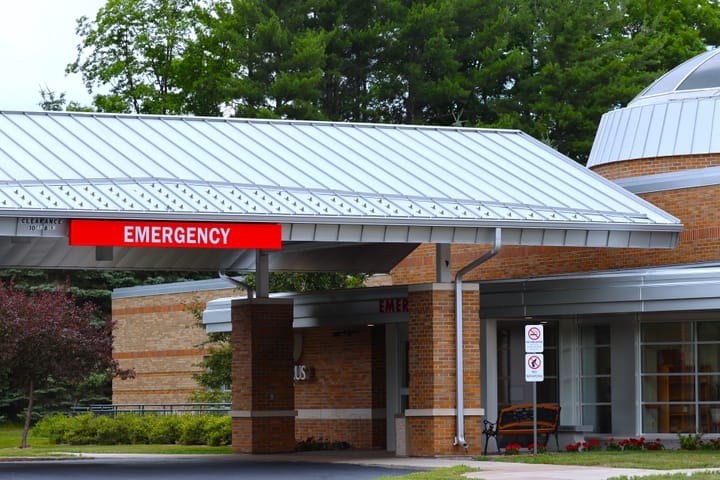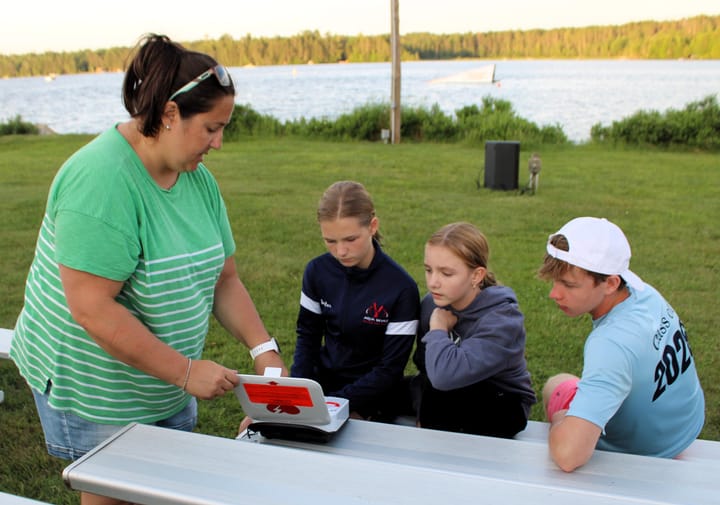Stella PFAS Investigation Continues After Supreme Court Decision Supports DNR
The Wisconsin Supreme Court handed down a ruling late last month that upheld the DNR's ability to address contamination related to PFAS — or "forever chemicals" as they've been called — without first designating them as a hazardous substance.
This ruling could have big implications on PFAS clean-up efforts like the one occurring now in the Town of Stella in Oneida County, which has been battling a serious PFAS contamination since 2022 with some residents unable to drink or cook with their well water.
According to Meaghan Cibarich, Natural Resources program coordinator for the DNR, the Wisconsin Supreme Court’s decision in WMC and Leather Rich, Inc. v. DNR affirmed DNR’s interpretation and implementation of the Spills Law with regards to PFAS. "This means that DNR will continue its ongoing work in Stella to protect public health and address PFAS contamination," she said.
The case was considered a win for environmental advocates and people living in communities that have been contaminated by PFAS, including Gov. Tony Evers who called the ruling a "historic victory."
Not everyone was enamored with the ruling — including Rep. Rob Swearingen who represents the 34th District in Vilas and Oneida counties — calling it a "slap in the face to innocent landowners across our state — especially in northern Wisconsin."
The court ruled against Wisconsin Manufacturers and Commerce, Inc., who brought a case against the Wisconsin DNR that said citizens have a right to know which substances the Spills Law applies to before expending significant time and money remediating a discharge and being subjected to substantial penalties.
The DNR said if it must promulgate rules identifying each substance, quantity and concentration that qualifies as "hazardous," it cannot respond to hazardous substance spills in real time as they are occurring, and that enforcement of the Spills Law would grind to a halt.
Wisconsin's Spills Law requires parties responsible for a hazardous substance discharge on their property to notify the DNR immediately. They must then initiate "actions necessary to restore the environment to the extent practicable and minimize the harmful effects from the discharge to the air, lands or waters of this state."
Five members of the court sided with the DNR, including Janet Protasiewicz, Ann Walsh Bradley, Rebecca Dallet, Brian Hagedorn and Jill Karofsky. Rebecca Grassl Bradley and Annette Ziegler dissented.
Both Evers and Swearingen released statements after the verdict was made public.
"This is a historic victory for the people of Wisconsin and my administration's fight against PFAS and other harmful contaminants that are affecting families and communities across our state," Evers said. "The Supreme Court's decision today means that polluters will not have free rein to discharge harmful contaminants like PFAS into our land, water, and air without reporting it or taking responsibility for helping clean up those contaminants.
"It's a great day for Wisconsinites and the work to protect and preserve our state's valuable natural resources for future generations," he said.
A recent Marquette Law School poll revealed that 79% of Wisconsin voters said they were very or somewhat concerned about PFAS contaminating their drinking water, and 33% said the so-called "forever chemicals," which are found in firefighting foam and nonstick cookware, were the most important issue impacting drinking water.
Evers' biennial budget proposal included $145 million for a PFAS cleanup trust fund — one of 600 items removed by the Joint Finance Committee in early May.
Swearingen declared his distaste for the ruling in a press release stating, "The court gave the DNR the power to act without oversight, without rulemaking, and without accountability. Even worse, Gov. Evers had the audacity to call this a 'historic victory.' It's not."
He went on to call the ruling a "historic expansion of bureaucratic power and a green light for unelected regulators to target farmers, homeowners, and small-town families who had nothing to do with PFAS contamination," and a "massive overstep." He went on to say that northern Wisconsin "families, farmers and small business owners deserve clear protections — not threats from an agency acting without oversight."
Swearingen is co-author of Assembly bills 130 and 131, which are designed to protect innocent landowners from liability related to PFAS contamination. The legislation creates an Innocent Landowner Grant Program and provides clear exemptions from enforcement under Wisconsin's Spills Law for property owners who did not cause the contamination on their land.
"These measures offer a fair and consistent framework for addressing PFAS impacts without punishing those who were not responsible," Swearingen said. "We're working to enact clear statutory protections that ensure innocent landowners are not punished for something they didn't cause. The Supreme Court just moved in the opposite direction."
But Cibarich specified that, unlike what Swearingen suggests, the home or property owner is not automatically responsible for investigating and cleaning up the contamination.
"The DNR is not requiring homeowners with PFAS contaminated wells and farmers with PFAS contaminated lands to clean up the contamination. In fact, the DNR intends to put to rest any concerns our farmers and rural homeowners have regarding liability by pursuing an exemption in statute, as was included in Gov. Evers’ 2025-27 Executive Budget proposal," she said. "In addition, when contamination from one property migrates and affects another property, Wisconsin law already provides an exemption for an owner of the affected, neighboring property from the requirement to take actions under the Spills Law."
DNR Continues PFAS Aid for Stella Residents
Since highly elevated PFAS levels were found in private wells in Stella, a number of residents remain unable to use their water for drinking or cooking due to the dangerous levels of the chemicals. Cibarich added that while the causes and remedies are still being investigated, the DNR will continue its efforts to help residents in Stella that don't have access to clean water.
"The DNR continues to focus its resources on sampling private wells in the town of Stella and providing bottled water to property owners and affected individuals whose wells exceed Wisconsin Department of Health Services' recommendations for PFAS," she said. "In addition, DNR has issued advisories to provide public information related to initial assessment of PFAS in groundwater, surface water and sediment."
According to Cibarich, the DNR recently completed a preliminary assessment and site inspection sampling on behalf of the United States Environmental Protection Agency (EPA). "These actions were conducted to support the EPA's evaluation of whether the PFAS contamination in the town of Stella qualifies this area to be listed as a Superfund site on the National Priorities List (NPL).
"The DNR takes these steps when a site may meet the criteria to be included on the NPL and the DNR may not have sufficient resources available to ensure that the contamination is adequately investigated and remediated. If the site becomes a Superfund site, EPA is likely to search for and may pursue potentially responsible parties as part of the Superfund process. The DNR also continues to share information and coordinate with EPA regarding PFAS contamination in the town of Stella," she said.
As of June 20, the DNR has received PFAS results for 241 private wells in the vicinity of the town of Stella. Of the 241 wells sampled for PFAS, 88 private wells have reported concentrations of PFAS greater than Wisconsin Department of Health Services' (DHS) recommended health guidelines; 39 private wells have reported detections for PFAS, but are less than the DHS' recommended health guidelines; and 114 private wells have no reported detections for PFAS.
Additional Findings
The DNR also has conducted testing of surrounding waters, fish, and deer tissue to learn about the extent of the PFAS. In the summer of 2023, the DNR's Water Quality program sampled surface water sites near the towns of Starks and Stella, including the Moen Lake Chain, the north branch of the Pelican River and the Wisconsin River near Rhinelander, for PFAS. Sampling results found elevated levels of PFOA and PFOS, two types of PFAS compounds, that were higher than Wisconsin's water quality standards.
Fish samples were also collected from Fifth Lake in the Moen Lake Chain. Based on the results, the DNR directs everyone to follow fish consumption recommendations for the Moen Lake Chain. Fish were also collected from Snowden Lake and these results are currently being reviewed by DHS and the DNR.
During the 2024 deer season, muscle and liver samples were collected from deer harvested within a 3-mile radius of Stella. These samples were analyzed for PFAS and results are currently being reviewed by the DNR and DHS.
The DNR noted that further investigation would be needed to determine PFAS sources in the area. However, it's working closely with partners at the DHS and Oneida County Health Department to evaluate probable contaminant sources and communicate health risks to the public. More information on how best to protect people and pets from potential PFAS exposure is available on the DHS website.



